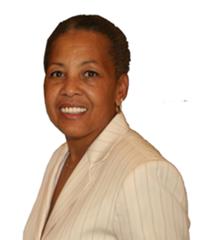Black Women's Roundtable
By Felicia M. Davis

The term “grassroots” connotes organizing at the local level to improve the spaces and places where ordinary folk live their lives.
Throughout time, black women have provided leadership at this level; we now have an opportunity to provide global leadership by resurrecting traditional black family values to usher in a new era of conservation. Waste, excess and conspicuous consumption must be replaced with a return to responsible stewardship.
We helped to plant physical, intellectual and spiritual seeds that are now sprouting in an international movement for environmental justice and equity — what is now referred to as sustainability. We create change from the bottom up.
While scientists measure the concentration of carbon in the atmosphere, seeking to devise technological solutions to avoid forecasted catastrophic climate upheaval, black women of faith, healers and organizers point to the breakdown of the family, erosion of values, unhealthy neighborhoods and global human rights abuses as signs that things are out of balance.
Women possess a deep appreciation for the connection between how we regard our neighbor and our care for the planet. We know the importance of changing hearts and minds to bring about desired outcomes.
We are natural change agents and the global environmental crisis cannot be solved without the involvement of women at the decision-making levels, especially black women.
Politically speaking, black women live at the intersection of race, class and gender, experiencing impacts of these three factors simultaneously. Since our first days on these shores, we have worked in fields, cultivated family gardens, and chronicled the effects of medicinal herbs and natural healing techniques as matrons, midwives and mothers.
We must embrace the wisdom of our foremothers to provide needed leadership in the 21st century green revolution.
On the surface, it would appear that policies to green the economy — by advancing renewable energy, reducing waste, and deploying massive resources to create greener buildings and infrastructure — will provide needed solutions. The truth is that the American economy is driven by consumption.
Little distinction is made between needs and artificially created wants. If the perspectives of women who head households, care for children, nurse the sick, work for consistently lower wages and negotiate inefficient public transportation are not well integrated in the development of emerging policies, outcomes will certainly fall far short of the required reductions.
Our grandmothers had a term that trumped “efficient;” it was “sufficient.”
In other words, enough is enough. Women must step forward to declare that excessive consumption is an abomination. We must make the case for sharing, caring and service as cornerstones for the emerging new economy.
We must help to change the way that we all think about economics and environment. We must redefine work in relationship to family with hours, pay, benefits and priorities consistent with the world as women experience it.
Green job proposals focus almost exclusively on job creation in the male-dominated building and infrastructure trades. Despite efforts to recruit women, the fields of construction, engineering and architecture remain male-dominated. While attention should be devoted to increasing the participation of women in nontraditional fields, we also have important contributions to make as “social engineers” when it comes to building design, community and economic development.
We offer indispensable insights into the creation of safe neighborhoods where care for the most vulnerable — children and elderly — is central.
If designed by women, schools, child care, senior centers and affordable housing would be in close proximity to jobs, safe parks, healthy food options and public transportation.
We must lend our support for aggressive national and international emissions reductions; however, we cannot be fooled into believing that a global climate agreement in Copenhagen, Denmark, will result in ecological balance and sustainable economies.
Quality must replace quantity as the measure of development. Our ancestors elevated arts; culture; education; family; community; creativity; and craftsmanship. We must link arms in the global movement for equity, gender sensitivity and protection of Mother Earth.
Felicia M. Davis is the president of Just Environment and a member of the Black Women's Roundtable.
Healthy, Wealthy & Wise Forum Series | Community Service Initiative | Whispering Out Loud Op-Ed Series









